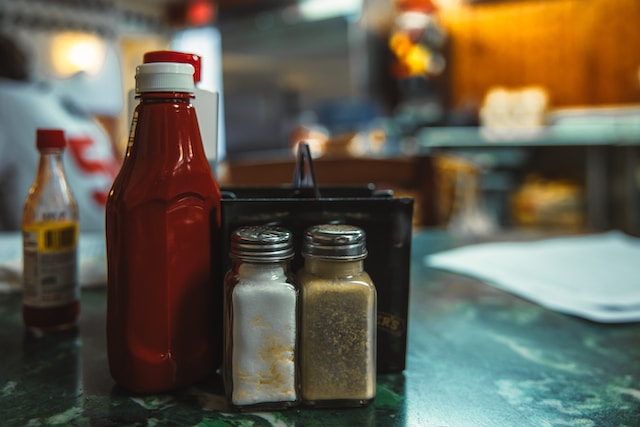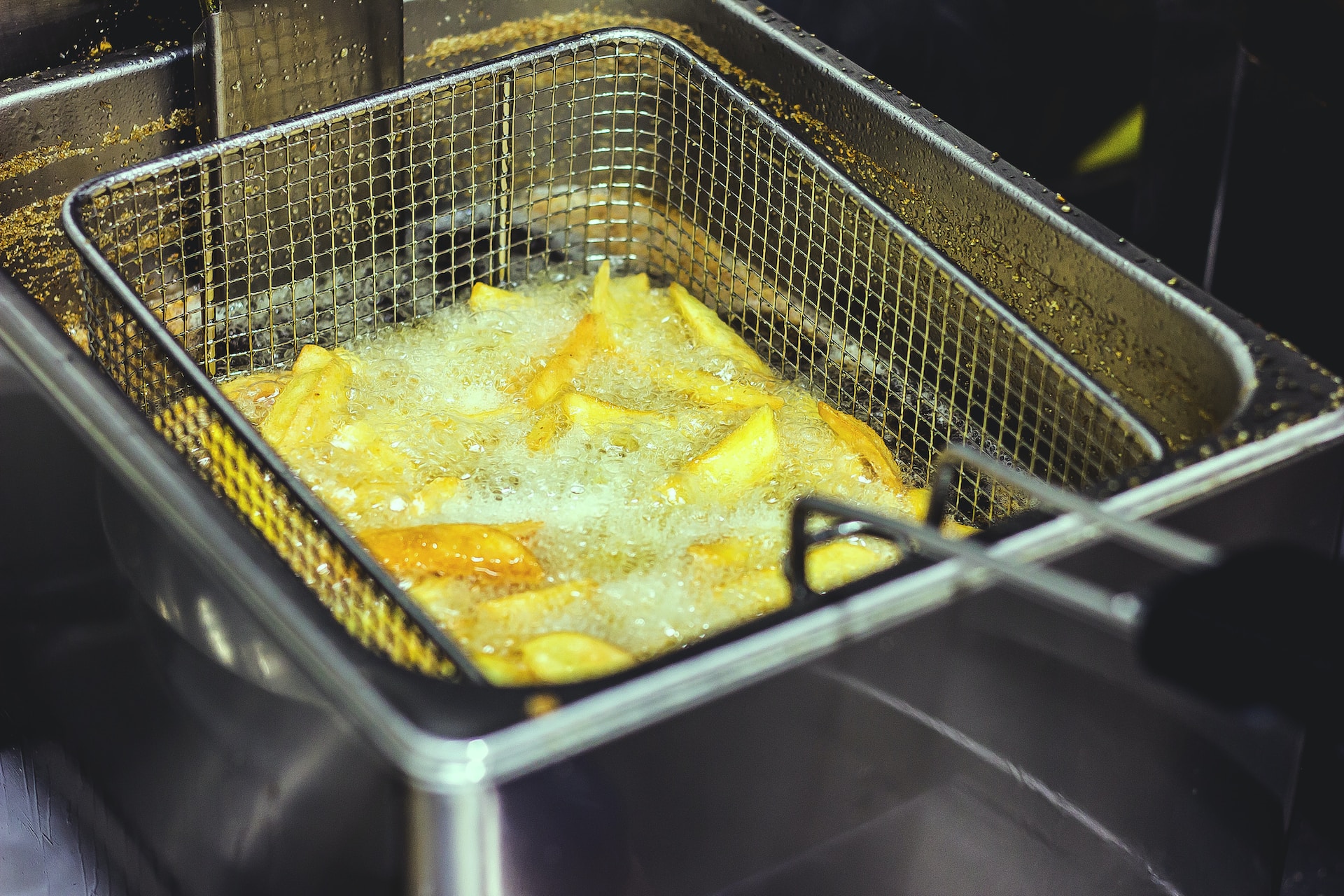Ketchup is a popular condiment used in many restaurants worldwide. It is a flavorful addition to french fries, burgers, hot dogs, and many other dishes. However, have you ever wondered why some restaurants do not refrigerate their ketchup bottles, leaving them out on tables or counters? It may seem counterintuitive to leave a tomato-based sauce unrefrigerated, but there are several reasons why restaurants do this. In this article, we will examine the various factors that influence the decision to leave ketchup unrefrigerated in restaurants.
Vinegar and Salt Content
Restaurants use ketchup as a condiment for a variety of dishes, and it has become a staple in many households as well. One may wonder why restaurants do not refrigerate ketchup. One of the main reasons is the high acidity, vinegar, and salt content of ketchup, which act as natural preservatives.
When tomatoes are cooked and processed to make ketchup, the resulting product is highly acidic. Vinegar is also added as a preservative, which increases the acidity level further. The acidity helps to prevent bacterial growth in ketchup, which is the primary reason why it can be stored at room temperature.
In addition, ketchup also contains a high amount of salt, which acts as a preservative by inhibiting bacterial growth. The high salt and acid content work together to create an environment that is hostile to bacteria, keeping the ketchup fresh and safe for consumption without refrigeration.
Therefore, ketchup manufacturers recommend storing it in a cool and dry place, away from direct sunlight, but not necessarily in the refrigerator.
Pasteurization Process
One of the main reasons why restaurants do not refrigerate ketchup is that it undergoes a pasteurization process during manufacturing. This process involves heating the ketchup to a high temperature, which kills any bacteria present in the product. After pasteurization, the ketchup is bottled and sealed to prevent any new bacteria from entering.
The pasteurization process not only kills bacteria but also helps to extend the shelf life of ketchup. It is estimated that pasteurized ketchup can last for up to two years without refrigeration, as long as the seal is not broken.
However, it is important to note that not all ketchup brands are pasteurized. Some small-scale or homemade ketchup may not undergo this process and would require refrigeration. Therefore, it is essential to check the label and storage instructions before consuming ketchup.
Cost-Effective for Restaurants
Restaurants operate on tight margins, and many factors can affect their profitability. One such factor is food waste, and another is the cost of equipment and energy. Refrigerating ketchup bottles would require additional refrigeration units and increase energy costs, which could impact the restaurant’s bottom line. As ketchup has a high acidity level and contains preservatives, it does not require refrigeration to stay fresh.
Moreover, since ketchup is a commonly used condiment in most restaurants, it is typically bought in bulk, with large bottles or bags of ketchup concentrate being used to fill smaller bottles. These large containers of ketchup are not usually refrigerated, and as such, there is no need to refrigerate the smaller bottles.
However, it is worth noting that some restaurants may choose to refrigerate their ketchup bottles for various reasons, such as maintaining a higher standard of food safety or customer preference.
FDA Regulations
The United States Food and Drug Administration (FDA) has specific regulations regarding the manufacturing and storage of food products in order to maintain food safety standards. In the case of ketchup, the FDA has set guidelines for the product’s acidity and pasteurization process to ensure that it is safe for human consumption. However, some may wonder why restaurants do not refrigerate ketchup, despite its tomato base.
Acidity and pH Levels:
Ketchup is a highly acidic food product, with a pH level below 4.0, which is well below the pH level of bacteria growth. This low pH level is a result of the vinegar content in ketchup, which acts as a natural preservative. The high acidity of ketchup creates an environment in which bacteria cannot thrive, preventing the growth of harmful pathogens that could make consumers sick.
Pasteurization Process:
To further ensure the safety of ketchup, it undergoes a pasteurization process during manufacturing. This process involves heating the ketchup to a specific temperature for a set amount of time, effectively killing any bacteria or microorganisms that may be present in the product. The pasteurization process allows ketchup to be shelf-stable without refrigeration until it is opened.
Cost-Effective for Restaurants:
Refrigeration can be expensive for restaurants, as it requires additional space and energy to maintain the appropriate temperature. By leaving ketchup at room temperature, restaurants can save money on refrigeration costs and reduce their overall energy usage. Additionally, leaving ketchup at room temperature can be more convenient for customers, as they do not need to wait for the ketchup to reach a desired temperature before use.
FDA Regulations:
The FDA has specific regulations in place for ketchup manufacturers that ensure the safety and quality of the product. These regulations include pH levels, pasteurization, and container specifications. As long as restaurants follow the FDA’s guidelines for ketchup storage, they can safely leave the ketchup at room temperature.
Conclusion:
While it may seem unusual to leave ketchup at room temperature, its acidity and pasteurization process make it a safe and shelf-stable product. Additionally, refrigeration can be costly for restaurants and inconvenient for customers. As long as restaurants follow FDA guidelines for ketchup storage, leaving ketchup at room temperature is a safe and cost-effective option.
Taste and Texture
Ketchup is a condiment that is meant to be consumed with different types of food to enhance the taste. The consistency and texture of ketchup play a significant role in determining its taste. When ketchup is refrigerated, it becomes thicker and loses its texture, which changes its taste. The refrigeration process can also alter the chemical composition of ketchup, making it taste slightly different than when it is stored at room temperature. Restaurants prefer to serve ketchup at room temperature to maintain its original taste and texture, which is preferred by most customers.
Moreover, ketchup contains vinegar and salt, which act as natural preservatives. These ingredients prevent bacterial growth and increase the shelf life of the product. As long as the ketchup is stored properly and not exposed to excessive heat or moisture, it will remain safe to consume for an extended period.
Some customers may prefer cold ketchup with their food, but restaurants often provide options for customers to request chilled ketchup if they prefer. However, most restaurants choose to store ketchup at room temperature due to the reasons mentioned above.
Alternative Options
Although ketchup can be safely stored at room temperature, some people may still prefer refrigerated ketchup. If you are concerned about the taste or texture of room-temperature ketchup or simply prefer the taste of chilled ketchup, there are alternative options available.
One alternative is to ask the server or restaurant staff if they have any refrigerated ketchup available. Many restaurants may have extra bottles of ketchup that are kept refrigerated for customers who request it.
Another alternative is to bring your own small bottle of ketchup to the restaurant. This can be a convenient option for people who are particular about the temperature or taste of their ketchup.
Finally, there are also many other condiments available that do not require refrigeration, such as mustard, hot sauce, or soy sauce. These can be used as a substitute for ketchup or as an additional condiment to complement your meal.
Ultimately, the decision to use room-temperature ketchup or seek an alternative option is a matter of personal preference. However, it is important to remember that ketchup that has been safely stored at room temperature is still safe to consume and can provide the same taste and quality as refrigerated ketchup.
Conclusion
In conclusion, although some people may feel skeptical about the safety of ketchup that is not refrigerated, the reality is that commercially produced ketchup is safe to consume even if it is left unrefrigerated for a period of time. The vinegar and salt content of ketchup acts as a natural preservative, while the pasteurization process ensures that any harmful bacteria are eliminated. Additionally, leaving ketchup out at room temperature is a cost-effective and convenient option for restaurants, and it complies with FDA regulations. While some people may prefer to refrigerate their ketchup for personal reasons, it is not necessary from a safety standpoint. Ultimately, whether or not to refrigerate ketchup is a matter of personal preference, and both options are viable.




